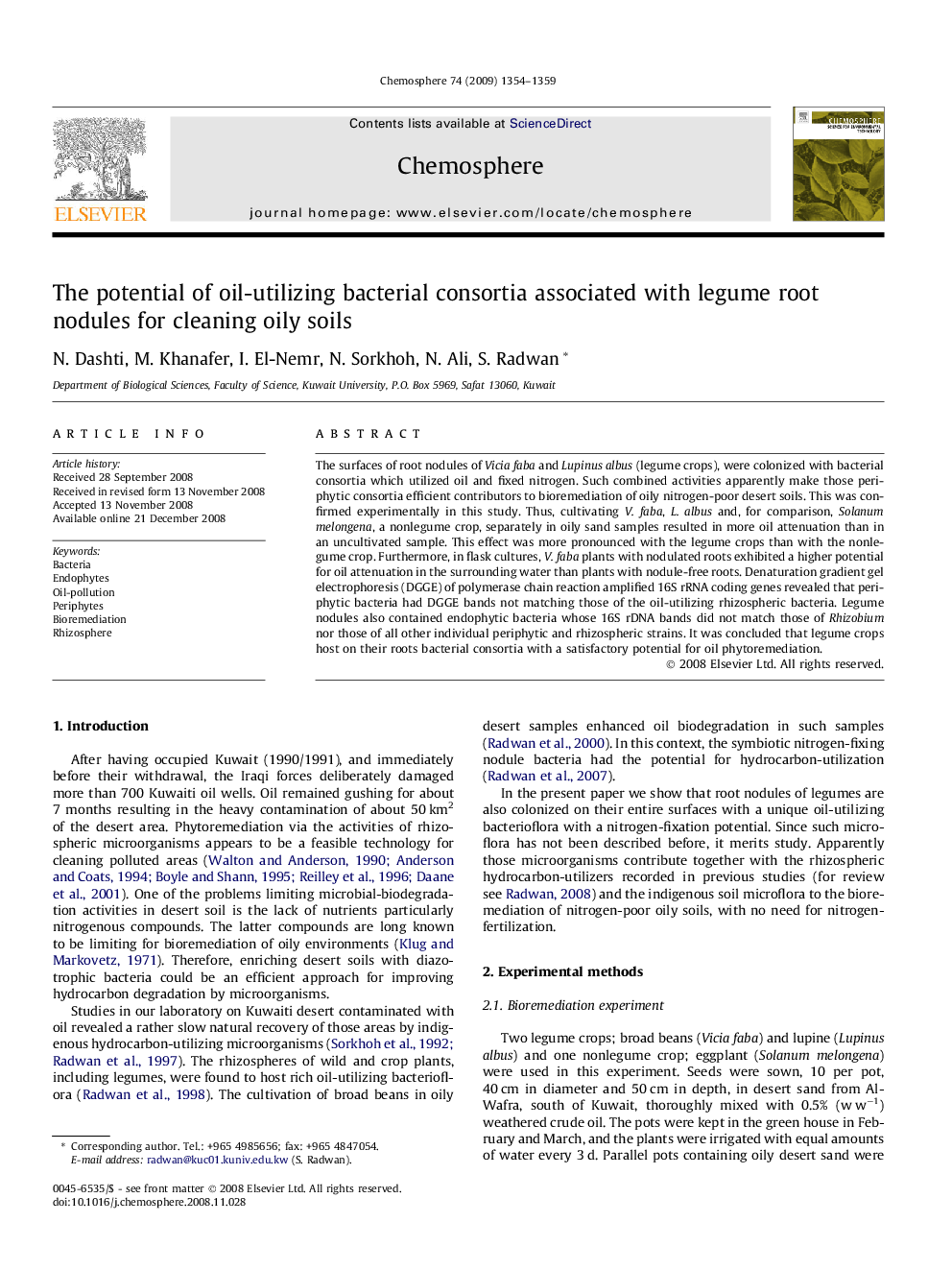| کد مقاله | کد نشریه | سال انتشار | مقاله انگلیسی | نسخه تمام متن |
|---|---|---|---|---|
| 4413193 | 1307668 | 2009 | 6 صفحه PDF | دانلود رایگان |

The surfaces of root nodules of Vicia faba and Lupinus albus (legume crops), were colonized with bacterial consortia which utilized oil and fixed nitrogen. Such combined activities apparently make those periphytic consortia efficient contributors to bioremediation of oily nitrogen-poor desert soils. This was confirmed experimentally in this study. Thus, cultivating V. faba, L. albus and, for comparison, Solanum melongena, a nonlegume crop, separately in oily sand samples resulted in more oil attenuation than in an uncultivated sample. This effect was more pronounced with the legume crops than with the nonlegume crop. Furthermore, in flask cultures, V. faba plants with nodulated roots exhibited a higher potential for oil attenuation in the surrounding water than plants with nodule-free roots. Denaturation gradient gel electrophoresis (DGGE) of polymerase chain reaction amplified 16S rRNA coding genes revealed that periphytic bacteria had DGGE bands not matching those of the oil-utilizing rhizospheric bacteria. Legume nodules also contained endophytic bacteria whose 16S rDNA bands did not match those of Rhizobium nor those of all other individual periphytic and rhizospheric strains. It was concluded that legume crops host on their roots bacterial consortia with a satisfactory potential for oil phytoremediation.
Journal: Chemosphere - Volume 74, Issue 10, March 2009, Pages 1354–1359